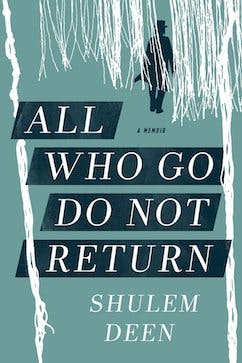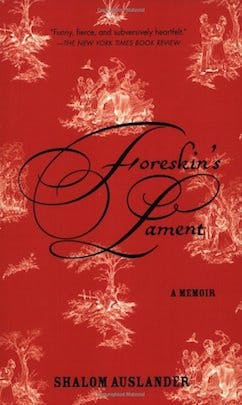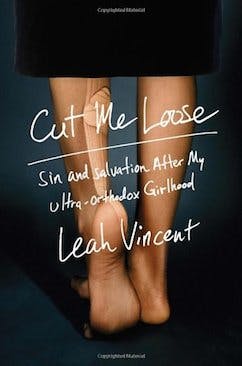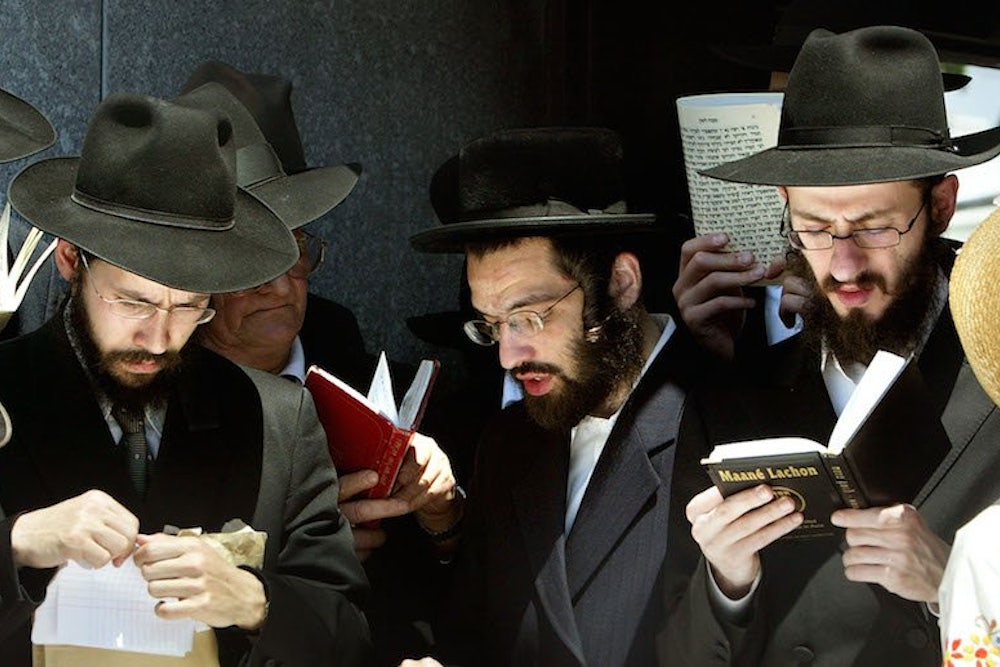When Shulem Deen was 13 years old, he was invited to a gathering in New Square, a Hasidic village 30 miles north of New York City. “I wasn’t eager to attend,” Deen writes in his memoir, All Who Go Do Not Return: A Memoir. In Borough Park, the Brooklyn neighborhood where he grew up, there were plenty of Hasidic leaders, men who “all seemed indistinctive and uninspiring, caricatures of pietistic pretense.” Deen’s family, though Hasidic, didn’t belong to a particular group, and like any teenage boy, he preferred hanging out with friends to participating in religious ceremonies. On the rare occasion that he did go to a tish, or ritual Sabbath gathering, “Little of it held my interest; I was far more concerned that my black caftan would become creased, that my polished black shoes would be scuffed, and that my Sabbath beaver hat would get knocked into a bowl of chicken soup.”

But the event in New Square proved to be different, as did the Hasidim who lived there. Founded in 1954, New Square is the home of the Skverer Hasidic sect, a group that originated in Ukraine and reestablished itself in the United States after the Holocaust. “They were erlich [honest] but also idiosyncratic,” Deen writes, “with a kind of provincial piety that was uncommon among American Hasidim.” That piety could express itself in extreme ways; in New Square every decision had to be approved by the group’s leader, Rabbi David Twersky, whether it was buying a house, taking a job, or even getting a driver’s license. Skverer Hasidim spoke Yiddish rather than English, received little secular education, and avoided outside influences. Even among fundamentalists, New Square has the reputation of being extreme, a place where “fanatics shook their heads in dismay.”
But that Friday night the local Skverers welcomed their Brooklyn visitors warmly, drawing Deen and his friends into their celebration. Perhaps because of his hosts’ enthusiasm, or because of the new surroundings, or because he was 13 and ripe for such experiences, Deen was swept up by the singing and chanting and, for the first time in his life, felt an overwhelming sense of religious devotion.
I understood the tisch not as something a teacher or parent declared important but as something experiential and inexpressible. It was some combination of the people, the food, the bodies pressed tightly together swaying in unison, the Hasidim’s warm smiles that inexplicably captivated me… It was soon after that evening that, if anyone asked, I would say, 'I am a Skverer.'
Today, some 27 years after that event, Deen is no longer a Skverer. In 2005, after living in New Square for 14 years, he was exiled from the village on suspicion of heresy and of corrupting local youth. Some of those suspicions were correct. While living in New Square he had obtained an illicit Internet connection (the Internet, along with other forms of secular media, is prohibited in the village) and had started a pseudonymous blog called Hasidic Rebel, which earned him a 2003 profile in The Village Voice. A few years later, he and his wife got divorced, and he stopped identifying as religious altogether.

Deen is now a writer living in Brooklyn and the editor of Unpious, a website by and for ex-Orthodox Jews. His book is also just one of several memoirs by ex-Orthodox authors that have appeared in recent years. Others include Shalom Auslander’s 2007 memoir Foreskin’s Lament; Deborah Feldman’s 2012 bestseller Unorthodox: The Scandalous Rejection of My Hasidic Roots, and Leah Vincent’s 2014 book, Cut Me Loose: Sin and Salvation After My Ultra-Orthodox Girlhood. Along with novels, academic texts, and countless newspaper and magazine articles, these stories represent a torrent of interest in the Orthodox Jewish community, and in those who have left it.

Undoubtedly, the success of these books has a lot to do with their exotic subject matter. In New York and other large American cities, ultra-Orthodox Jews are a highly visible minority. We see them on the subway, dressed in their black hats and jackets, and have to wonder what their lives might be like. These authors can tell us with the authority of first-hand experience, while speaking from a secular point of view.
Such stories are of more than sociological interest, however. Along with a juicy topic, they also have dramatic narratives. Unsurprisingly, leaving the Hasidic community is hard to do. Defectors have to defy their families, their communities, and the entire ideology in which they were raised. To enter the secular world they must acclimatize to new standards of dress, language, food, and cultural reference. These authors may have grown up in Brooklyn, but going from one half of Williamsburg to the other can, in some cases, be like crossing continents.
Deen’s book confirms some of these expectations, while complicating others. Although he relates moments of religious satisfaction—like the tisch he attended at 13—he also details the difficulties of growing up in a strict fundamentalist community. In some of the most shocking passages of the book he describes the corporal punishment practiced in Hasidic schools, which often crossed the line into abuse:
One rebbe [teacher] beat a boy with his gartel [cloth belt] mercilessly until the boy lay on the floor howling for hours. Another thwacked a boy’s palms several hundred times, until his welts began to bleed. One of my friends told me of a first-grade rebbe who had spanked his backside so raw that he couldn’t sit for days, all because the rebbe had accused him of taking a small bag of candies from his desk drawer, only to find the candies in a different drawer a few minutes later.
In a later passage, Deen relates how he was almost expelled from school when he tried to defend himself against a teacher’s attack, and how he pleaded his way back in only because he had nowhere else to go. Later in life, after he moved to New Square at 16 to study, he continued to struggle with the lack of personal autonomy. Near the beginning of the book, he describes his anguished decision to marry a woman he barely knew, simply because he saw no way to avoid it.
Like other ex-Orthodox memoirists, Deen emphasizes the intellectual side of his journey and the ways in which literary experience opened his eyes to the outside world. In one scene, he recalls visiting the children’s section of his local public library, sitting, in full Hasidic dress, “on a tiny orange chair at a low green-and-yellow table,” poring over volumes of the World Book encyclopedia. He soon moved on to more sophisticated material, including works of religion and philosophy. When he eventually taught himself computer programming in order to earn a living, he describes how “In mapping algorithms and routines, I found a kind of exhilaration that was similar to the logical processes of Talmud study.” While the events described in the memoir are mostly the “demonstrably dramatic” elements of his life, Deen’s intellectual journey was no less important to his transformation.
But Deen’s narrative also diverges in important ways from those of other authors, and his book, of all the ex-Orthodox memoirs thus far, is undoubtedly the best. This is partly because of his skill as a writer, but also because of the depth of his experience. While most memoirists—and Orthodox defectors in general—left their communities in their late teens or early twenties, either before marriage or shortly thereafter, Deen remained in New Square until he was 31, and didn’t fully leave the Hasidic community until two years after that. In the course of those years he didn’t just suffer from suffocating rules, but enforced them, as well.
Deen relates how he and a group of fellow students once ransacked a friend’s dormitory room because they thought he might be hiding some kind of contraband, like magazines or a miniature television. In the end they found nothing, and only managed to terrorize an innocent friend. Later, when he was working as a teacher in New Square’s elementary school, Deen resorted to the same kind of corporal punishment that he had been subjected to as a child. Fortunately, he was perceptive enough to realize that resorting to violence represented his failure as a teacher, and earned him the scorn of his students. From then on he found more progressive—and humane—methods to control the class.
The duration of Deen’s experience also complicates the neat story arc common to ex-Orthodox memoirs. Unlike most, which culminate with the author’s success in the secular world, Deen’s story has no happy ending. For him, leaving the Hasidic community meant the end of a 15-year marriage and the loss of his five children. Although he had no intention of compromising his role as a parent, he saw his kids become estranged from him because of their continued Orthodox upbringing. In the end, Deen writes of his custody battle: “I did not lose in court. Instead, I lost in my children’s hearts, and with them, very nearly my sanity.”
There is one note of fulfillment in the book, however. Early in his marriage, after realizing that he would need to find some way to make a living, Deen attended a meeting that was supposed to lead to an office job at an Orthodox-owned telecommunications company in New Jersey. All he had to do was fill out a resume listing his skills. But with little secular education and no job experience, what skills could he list? Thinking about his abilities, Deen wrote down, “Excellent English reading and writing skills.”
“Excellent English?” Gavriel asked with a scoff when I handed him my sheet.
“I’m from Borough Park,” I said.
He laid a hand on my shoulder. “Tzaddik,” he said, “you might be better than these guys.” He cocked his head to the line of men behind me. “But compared to Yeshiva University boys, your English isn’t worth a half-eaten radish.”
With this book Deen has laid to rest the idea that a Hasid from New Square could never become a great writer in English, or an articulate chronicler of his own experiences. And if the proliferation of stories like his is any indication, there are a lot of people out there listening.
